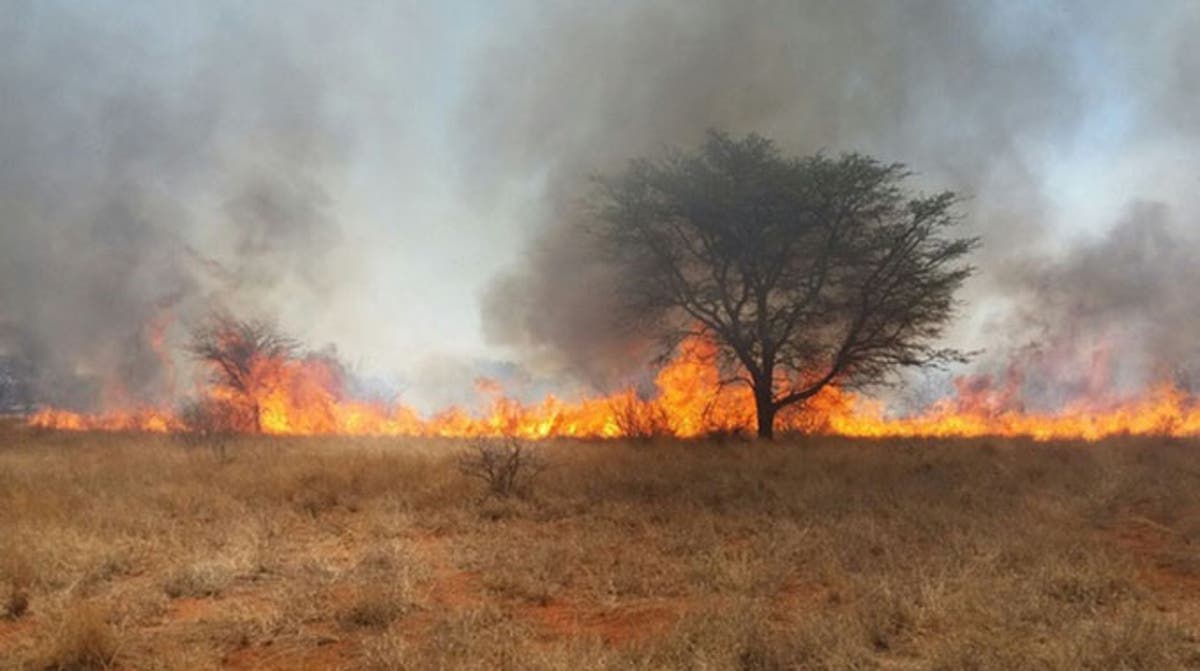Source: https://sasmallholder.co.za/2021/05/17/preparing-for-fire-season/
This is part one in a five-part series, Preparing for Fire Season.
Part Two: Making firebreaks
Part Three: ‘Firescaping’ your property
Part Four: Choosing your firefighting equipment
Part Five: Setting up a fire protection association
In the dead of a dry winter on the Highveld, with even a slight breeze blowing there is very little chance that you will be able to contain a grass fire in your field if the grass is long. For, even if the breeze doesn’t actively promote the blaze the fire will take on a life of its own, with the heat of the flames causing convection currents of air that themselves will fan the flames.
And, the heat of such a fire will be far too great for you to get anywhere near the face of the fire with anything less than the most powerful water spray.
Thus, preparing your fields beforehand by removing as much combustible material as possible ~ and as a precaution removing or protecting any flammable infrastructure such as electric fence isolators, water piping, pumps and electric cabling ~ is vital.
Once your grass has been cut it can be raked into haystacks if you feed it to your own livestock. Or, if it is surplus to your needs, it can be baled and sold.
Baling your grass
Baling on a smallholding is neither expensive or difficult and doesn’t necessarily require the services of an outside contractor.
You can make a simple bale box, which will produce an acceptable loose bale weighing about the same as a mechanically baled square bale but slightly larger in dimensions. A simple plan for a bale box, as well as a video demonstrating how it is used, can be found here.
Or, with a little more expertise you can make a hand-baler out of timber that will make a more compact square bale, more closely resembling a mechanically-made bale.
If you remove the long grass but still have livestock grazing in the paddock you will have an added advantage in the fire prevention stakes in that, as winter draws on and the grass becomes drier (and the danger of fire increases) your field will be shorn short by the animals, greatly reducing the danger.
When preparing a field for the fire season, pay particular attention to the grass growing up against fences, particularly those made of wire. That’s because even a few licks of flame will remove the galvanising on the fence wires, exposing the metal underneath and greatly reducing the life of the fence thereby.
Thus, using a brushcutter or, better still, a spade to scrape clear about 25cm of grass on either side of the wire leaving, if possible, bare earth under the fence itself.
This is part one in a five-part series, Preparing for Fire Season.
Part Two: Making firebreaks
Part Three: ‘Firescaping’ your property
Part Four: Choosing your firefighting equipment
Part Five: Setting up a fire protection association
Views: 13

